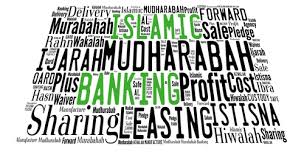However, banking institutions have to make a profit in order to stay in business. Hence, what course of action is open to the bank? Therefore, on this topic, you will have more insight into Murabaha mortgage loan practices, types, advantages, and disadvantages. Also, this article contains the application of Murabaha in Islamic banking, with a few pdfs.
Murabaha
It is also known as cost-plus financing is a structure in Islamic finance. It is a sales contract in which the seller and the buyer agree on the cost-plus price and profit of an asset. Moreover, a number of Islamic banks today have adopted types of Murabaha as a mode of financing. Murabaha on the other hand is a contract sale between the bank and its customers. The bank purchases a good and sells it at a price plus a profit margin for the bank to its customers.
Murabaha is quite different from other financial loans, this is because it doesn’t involve interest. The seller and the buyer agree on an asset or good at a price and profit margin or mark-up. However, according to the Islamic religion money is just a means of exchange. Every Islamic bank is barred from putting interest in a loan. They can only charge a flat fee to continue their daily activities.
Read also: World Bank Grants: All You Need To Know.
What Is The Purpose Of Murabaha?
The purpose of Murabaha is to finance a purchase without any interest payments. Because issuing conventional loans and charging interest on them are considered interest-based activities.
However, putting interest in murabaha is considered haram, which is prohibited according to Islamic shariah. Murabaha has been a default financing structure for Islamic banks.
Types Of Murabaha
Essentially, there are two types of Murabaha which include:
#1. Purchase Orderer Murabaha
This contract involves the bank specifically purchasing an asset or goods for their clients. Its client on the other hand agrees to buy the asset from the bank with a sale price based on an agreement with the future settlement terms.
#2. Commodity Murabaha
The commodity Murabaha is an instrument used in Islamic interbank business and activities. Note this, the source of funds for Islamic banks is based on the interbank transaction. basically, we can describe it also as a financial instrument used to fund the Islamic bank’s short-term liquidity requirement.
See also: Funding Opportunity – GrayMatter Capital.
Murabaha Loan
The Murabaha loan type of financing is basically used in place of loans in different sectors. Islamic financing in different forms is playing a very increasing vital role in the money markets. In essence, Islamic financing provides financial services in agreement with sharia law. In sharia law, there is no issuing of receipt or interest payment. Because of this, the sharia board comes in to regulate the activities of Marabaha, so it doesn’t go against the sharia law.
Thus, it is clear that any business transaction having a predominantly speculative nature would not be eligible for any Islamic financial loan. However, consumers use Murabaha loans in buying cars, real estate, and household appliances. Meanwhile, businesses use it in buying equipment and raw materials. For short-term transactions, Murabaha is used in issuing credit letters to importers.
Murabaha Contract
Murabaha contract sale, the bank purchases an asset or good for its clients and sells it to them at a cost-plus profit. The profit stands as a markup that both the bank and its clients agree on before the transaction. However, the client can make a lump payment when the good is delivered through a deferred payment installment plan.
So, based on this type of contract, a set fee is charged rather than riba (interest), and is legal in Islamic countries. Still, many argue that the Murabaha contract loan is another means of charging interest. But, the differences lie in the contract structure. Murabaha contract allows the bank to purchase an asset and sell it to its client with a profit charge. It’s also a contract of exchange based on sale-and-purchase contracts with a predetermined cost and profit. Murabaha contracts have their controversy with some Islamic scholars arguing that it does not share the risk, and thus is not a sharia-compliant. Moreover, experts have estimated that such contracts constitute up to 80 percent of the global Islamic finance volume.
You can also read The Ten Most Valuable Brands.
Example of Murabaha
Mr. William wants to buy a car from Mr. Adam for $100,000 but does not have enough money. Mr. William will contact the Murabaha bank and request they buy the car from Mr.Adam on his behalf. The bank now buys the car for $100,000 and sells it back to Mr. William for $109,000, the $9,000 is the cost-plus profit. Then, based on the installment period, over three years after the car is delivered, Mr. William has to pay back the bank. Before then, both parties have agreed on the profit and cost of the car at the onset. Therefore, there’s no financial uncertainty in the transaction.
Murabaha Mortgage
This mortgage is often used in commercial property finance structures by Islamic banks. This also includes buy-to-let mortgages as well and is only in line with the sharia law in form and not in spirit. Murabaha mortgage required the buyer to finance a percentage of the asset to be purchased upfront, mainly up to 20 percent. Therefore, this option is suitable for people who are starting out with some capital behind them.
The key benefit of this kind of mortgage is that from day one, the property officially belongs to the buyer, it is registered in their name. But the repayment period and monthly repayment amounts are agreed upon between the buyer and the lender. With a repayments plan fixed for the term of the buyer’s mortgage. The maximum repayment term is 15 years, and you can repay the loan in full at any point without penalty.
See Also: Mistakes You Should Avoid as a Start-up Entrepreneur.
Advantages and Disadvantages of Murabaha
One of its advantage in Islamic banking is that it is used as a mode of financing. Clients who need funds to purchase some commodities are given such loans. The client has to identify the asset he needs to purchase and the bank makes it available via the Murabaha facility.
What are the disadvantages?
You have to take note, that not every commercial risk is minus in Islamic finance like Murabaha. So, below are some disadvantages of Murabaha as part of the Islamic finance structure:
- There is no agreement based on Sharia interpretations of innovative financial products. Therefore, some Murabaha is based on prevailing interest rates rather than economic or profit conditions.
- Documentation is often tailor-made for the transaction, so high transaction and issue costs.
- Can be difficult to balance the interests of the financial institution with those of other stakeholders.
- With no interest, it is still hard for some Islamic instruments to debt. Therefore, losing the tax benefit and increasing the WACC.
- Some Islamic products may not be compatible with international financial regulations.
- There is no hedging, all Islamic banks cannot minimize their risks, that’s just one of the disadvantages.
Read Also: Easy Market Development Strategy + quick Guide.
Application of Murabaha in Islamic Banking
It is also referred to as a cost-plus sale. It is a type of sale whereby the seller is under obligation to reveal the actual cost of an asset to the buyer. The two parties mutually agree on the mark-up (profit) and the repayment terms and conditions. The asset, good, or commodity must exist at the time of sale and the seller must have physical possession thereof.
In general, contracts relating to Murabaha should be a channel in different financial structures which include mortgages, trade finance, and major asset financing. Also, in cash management, working capital financing, letters of credit, and syndicated loans.
Know more on: Back to Back Letters of Credits with Examples, Advantages & amp: Alternatives.
Murabaha pdfs
Below are a few pdfs on types of Murabaha you should download to learn more:
What Is the Difference Between Murabaha and Ijara?
The main difference between these two types is that with a Murabaha mortgage, the property is immediately registered in your name, whereas with an Ijara mortgage, you can only rent the property from your sharia-compliant lender, for which you must pay monthly rent and at the end of the agreed term.
What Is Murabaha Profit?
Its Profit refers to the total profit payable by the Customer to the Bank under the Murabaha Facility, as more clearly described in the Murabaha Contract, and is paid monthly.
What Is Sukuk in Islamic Banking?
Sukuk refers to the finance provider owning real assets and generating a return on those assets. In contrast, traditional bonds provide the investor with a debt product that earns the majority of its return through the payment of interest (riba). Riba, or excess, is prohibited by Sharia law.
How Does a Murabaha Work?
In a murabaha deal, a financing party buys an asset from a third party that its client (the borrower) has chosen. The financing party then sells the asset to the borrower for the original price plus a profit (generally calculated based on a benchmark figure such as LIBOR)
What Is Monthly Murabaha Payment?
It is a type of Islamic financing that works like a sales contract. It sets the price of goods or items that a customer wants, including a profit margin that has already been agreed upon.
What Is Murabaha Margin?
One of Albilad Capital’s Sharia-compliant trading options for clients who are interested in the local stock market is Online Margin Finance (Murabaha). Clients can get the Margin Finance in a short amount of time and get up to 100% of the value of their collaterals in financing.
What Is the Difference Between Sale and Murabaha?
It is a type of sale in which the seller tells the buyer how much it cost and how much profit it made. Musawima is a sale at an agreed-upon price without mentioning the price at which the seller bought the goods in the first place.
Conclusion
Murabaha is not a mode of financing in its origin. It is simply a sale on a cost-plus basis. It should neither be taken as an ideal Islamic mode of financing. Better still, as a universal instrument for all sorts of financing.





